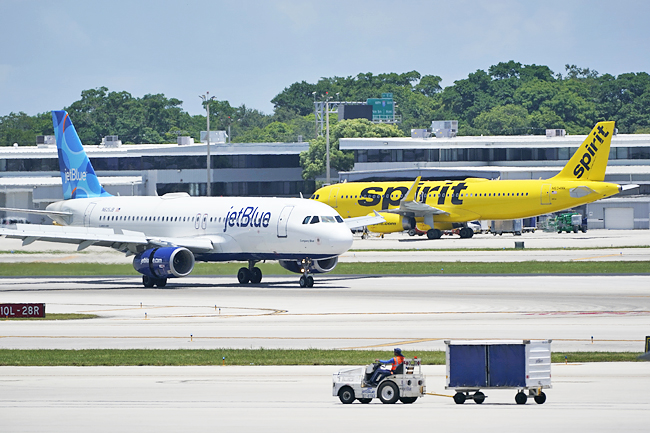NEW YORK (AFP) – The United States (US) Department of Justice (DOJ) on Tuesday sued to block a USD3.8 billion JetBlue-Spirit airline merger, saying that the combination would harm consumers and violate antitrust law.
The suit puts in jeopardy a transaction that JetBlue has characterised as consumer-friendly because it would create a stronger competitor to the “Big Four” carriers that dominate the US market.
“This merger will limit choices and drive up ticket prices for passengers across the country,” Attorney General Merrick Garland said at a news conference, adding that the deal “will be particularly harmful for travellers who rely on what are known as ultra-low-cost carriers in order to fly”.
The companies defended the tie-up, saying in a joint statement on Tuesday that they would “continue to advance” their effort to extend the “JetBlue Effect”, which has historically pressured bigger airlines to price more affordably.
“We believe the DOJ has got it wrong on the law here and misses the point that this merger will create a national low-fare, high-quality competitor to the Big Four carriers which – thanks to their own DOJ-approved mergers – control about 80 per cent of the US market,” said JetBlue Chief Executive Robin Hayes.
The joint press release said JetBlue would retrofit Spirit aircraft to allow more legroom, adding that the lost seats on aircraft would be offset by a greater number of flights.
“Together, we intend to democratise flying for travellers across the country – a goal we believe is worthy of the government’s support,” said Spirit Chief Executive Ted Christie. The suit argues that removing Spirit from the travel market would “eliminate the unique competition” it provides as a low-cost carrier, DOJ said.
This would “leave tens of millions of travellers to face higher fares and fewer options”, the department said in its complaint, adding that JetBlue has evolved from a “disruptor to closer ally of the Big Four”.
The department has also challenged an alliance between JetBlue and American Airlines that it argues impedes competition. The two sides presented arguments to a federal court in Boston in November, but a judge has yet to rule on that case.







